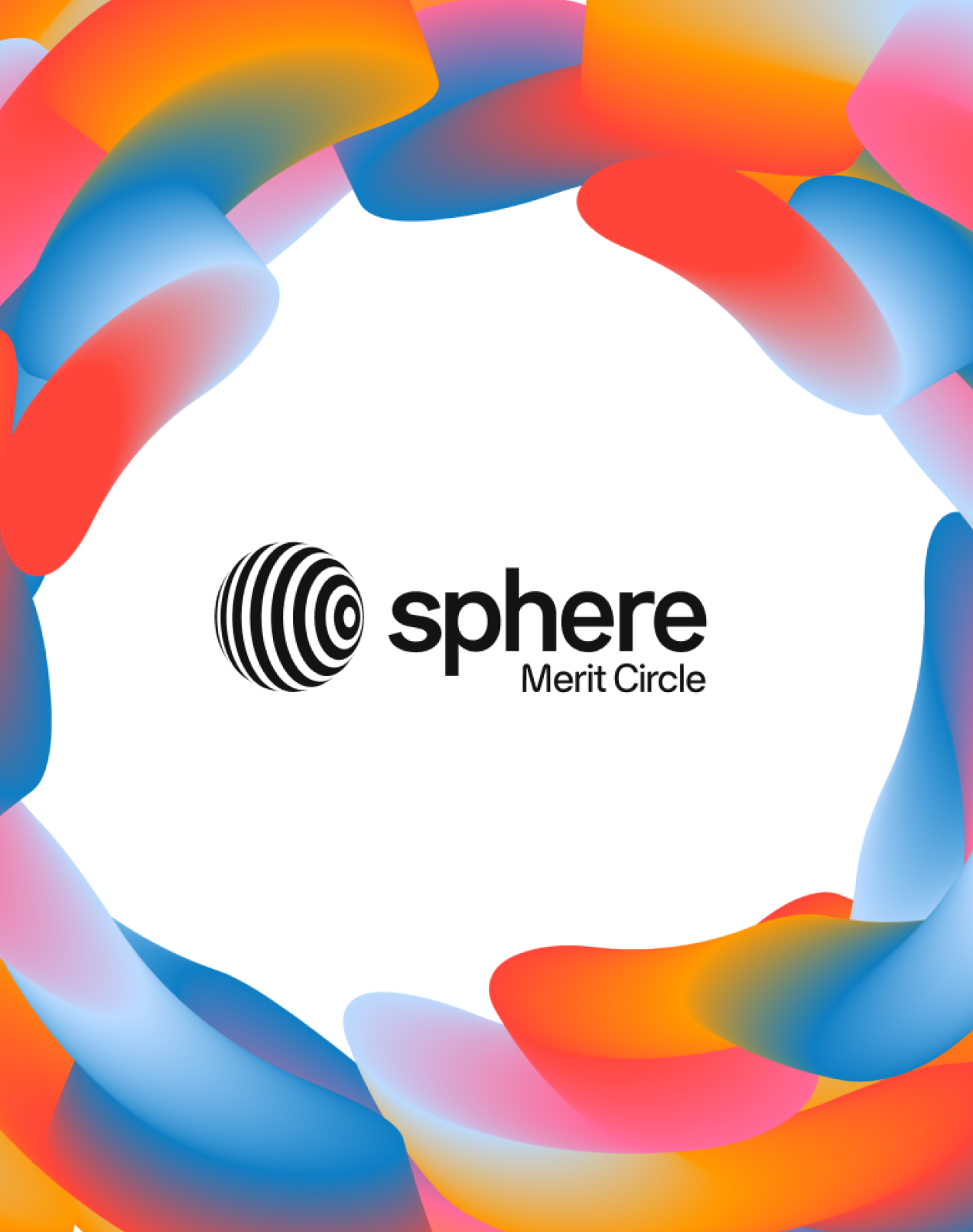MWELL
Launching a new D2C health brand
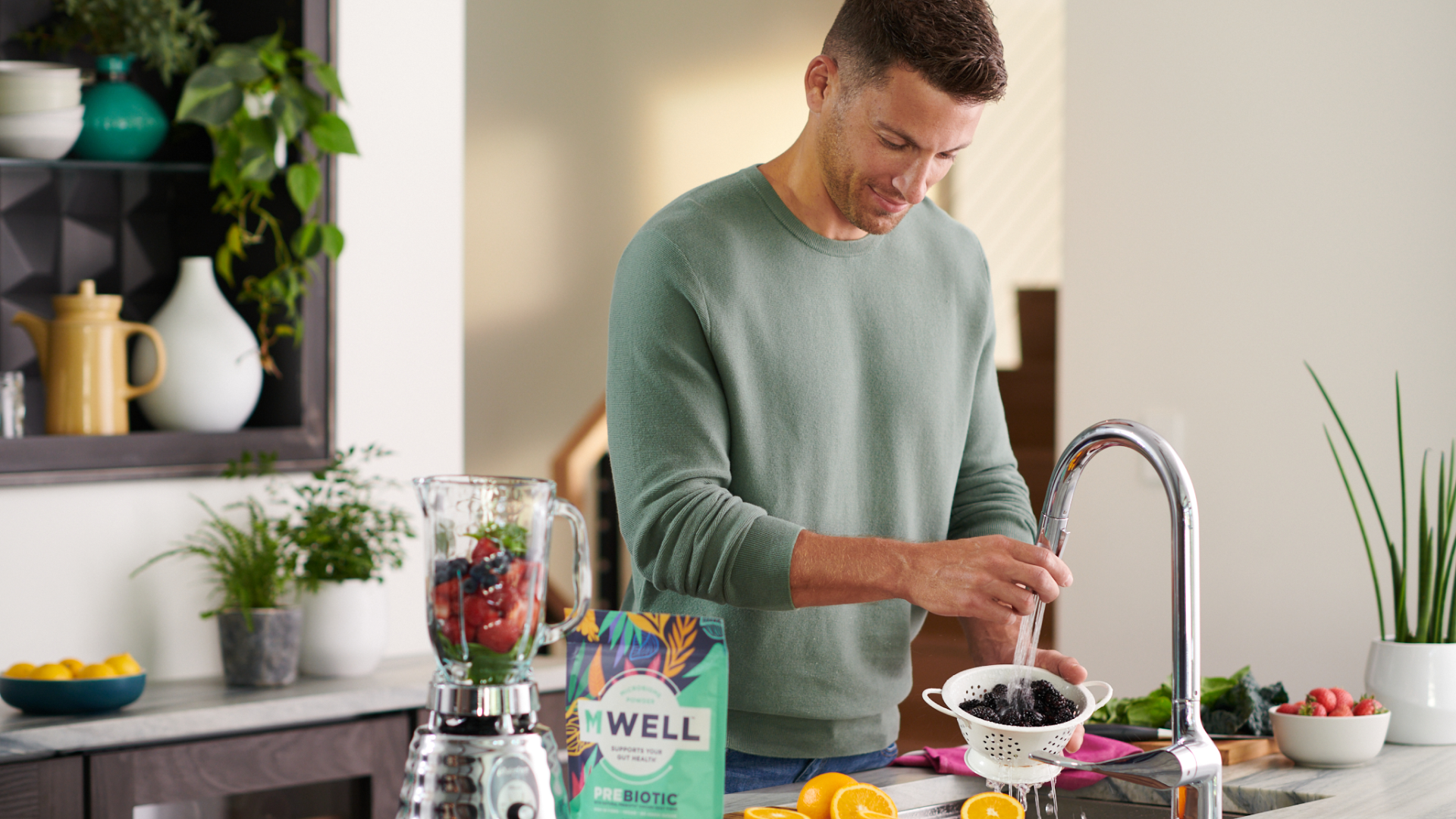
MWELL, a new direct-to-consumer health brand, was entering the market as a startup venture. MWELL’s microbiome, prebiotic and high-fibre products help support a healthy digestive system. Even though it’s an offshoot of one of the world’s largest food manufacturing companies, MWELL operates as its own entity, and turned to DEPT® to help with the brand launch.
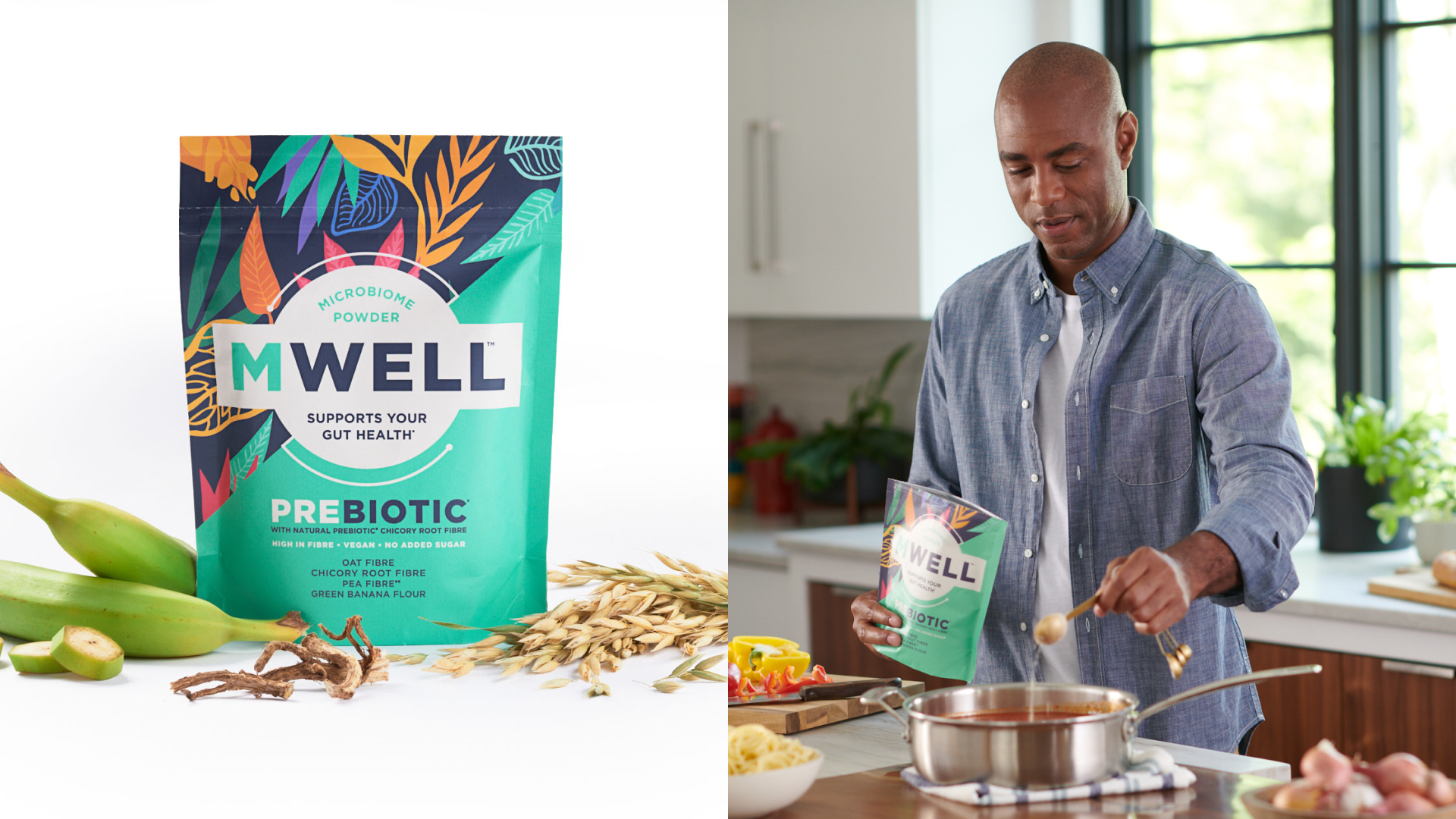
Brand positioning strategy
DEPT® joined the team as a strategic and creative partner, shaping MWELL’s brand personality and contributing to its go-to-market strategy. We delivered: content strategy; consumer research; marketing automation; email strategy and activation; social calendar; CRO, and creative assets for paid and organic social, display ads, and email marketing.
DEPT® researched UK competitors to understand MWELL’s market position in relation to product, brand and price. We performed consumer research, created audience personas and reviewed what each user journey would look like. Based on this information, we supported MWELL’s in-house team with a blueprint to capture data through implementing technical tools and analytics software.
MWELL emerged as a source of knowledge in gut health. Its brand tone of voice and messaging tapped into changing human behaviour around the need to protect one’s health, and leveraged the increase in people using cooking as a fun and creative outlet. DEPT®’s content team researched conversational topics and developed a strategy for MWELL to approach them in a way that its target audiences could relate to.
A social calendar was created to fuel its blog and social media with consistent messaging across all channels, reinforcing an omnichannel approach. As people sought out products to help balance the scales between living their best lives and maintaining overall health, MWELL was present to empower and provide solutions. The first part of the positioning strategy focused on building brand awareness and product engagement through educational pieces.
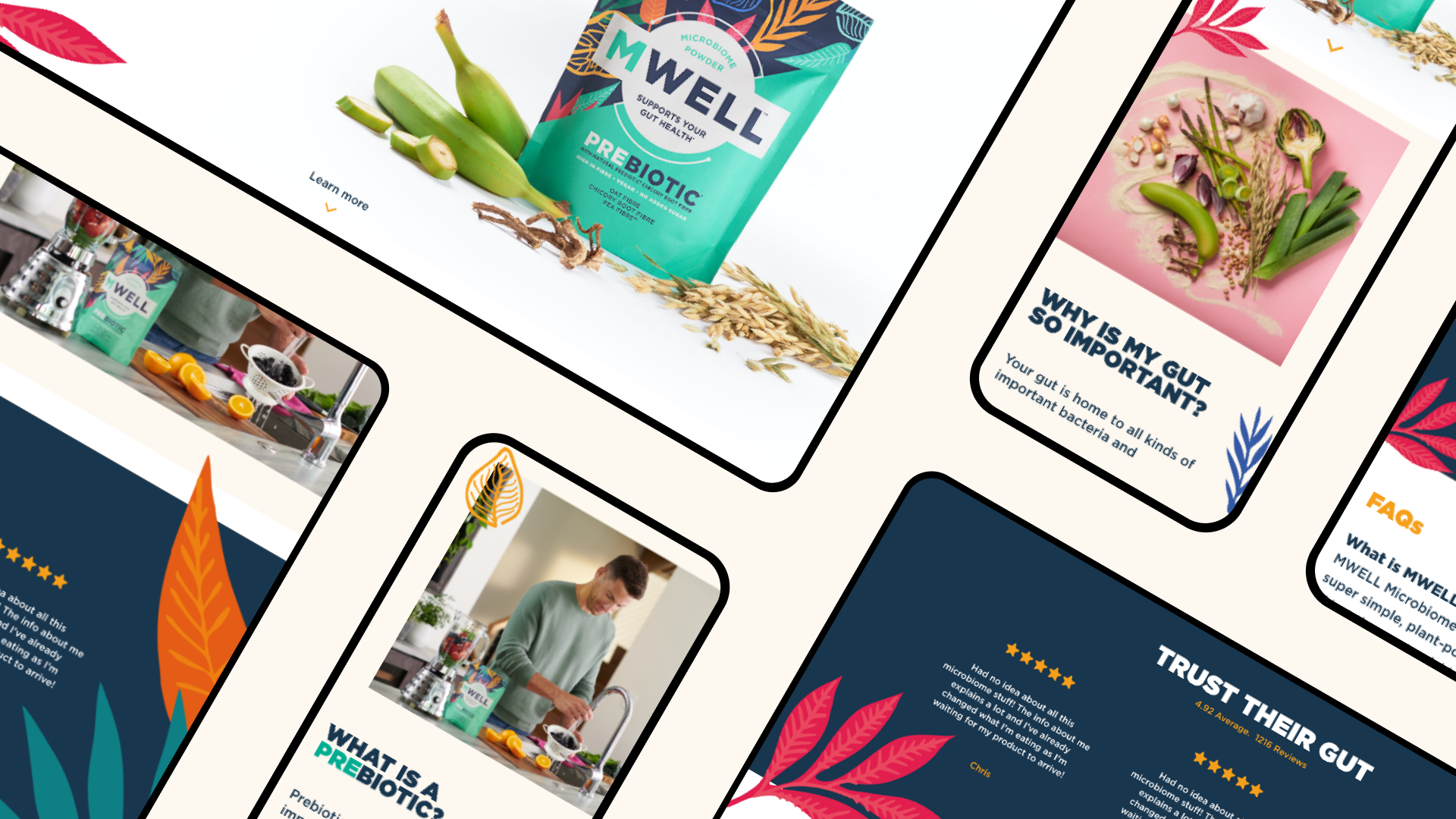
Launch strategy designed for product engagement
Unifying brand identity
DEPT®’s designers utilised the colours and fonts from MWELL’s website design to create a component library of assets that can be adapted throughout all of its brand touchpoints and marketing collateral. DEPT® designed email templates and introduced motion design into its brand advertising as an effective, visual tool to boost viewer engagement. This approach ensured MWELL was unified across all channels, creating a process where consistency is held to a high standard and the brand continuously stands out.
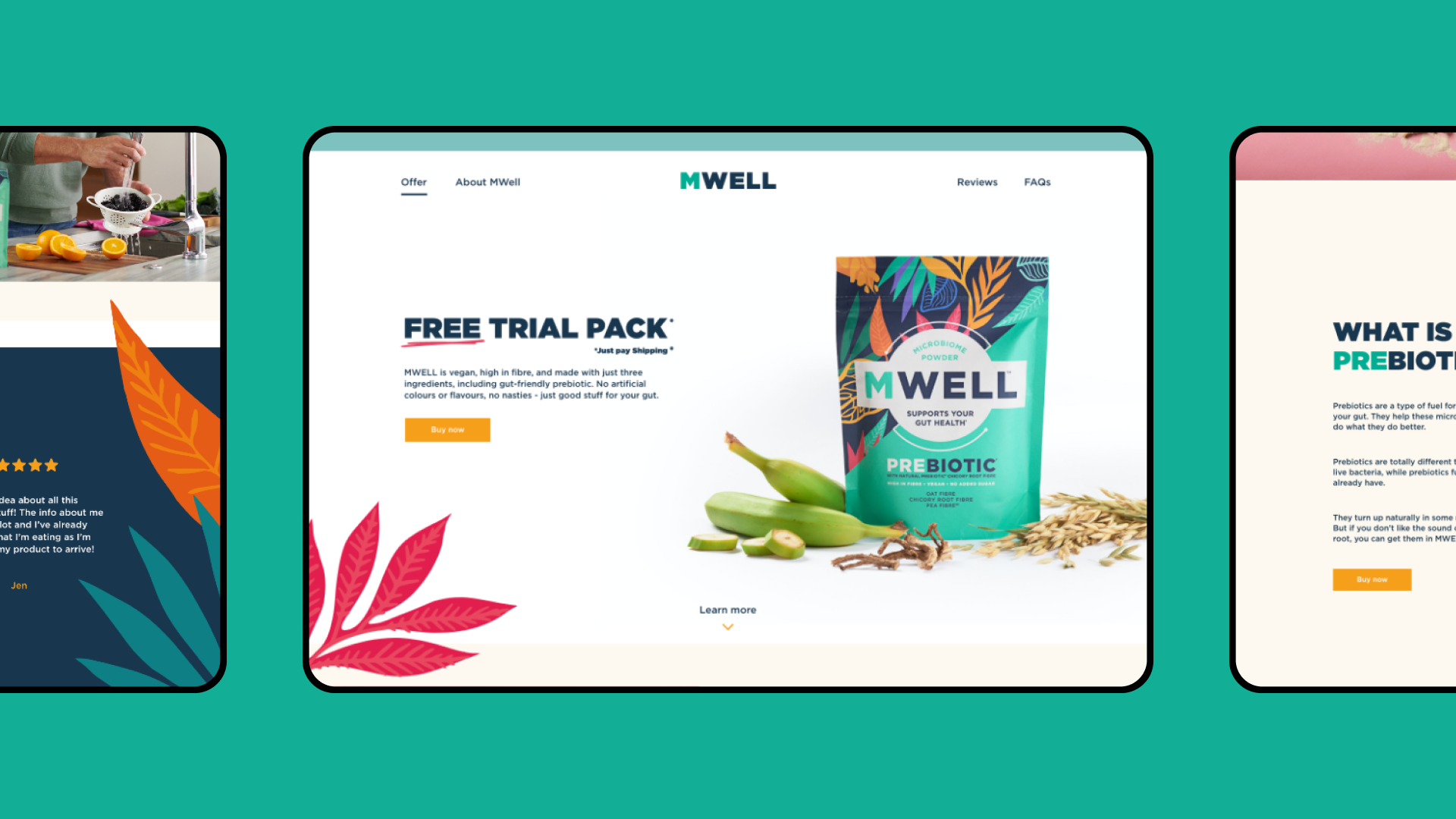
Omnichannel digital marketing
DEPT® collaborated with media agency iProspect to initiate a full-funnel marketing strategy. Together, we defined the most relevant marketing channels and incorporated the See – Think – Do – Care (STDC) model. We led on the creative side, copywriting organic social media posts and designing all advertising assets, which worked in tandem with MWELL’s paid activity and strategy implementation.
Our advertising creative encompassed a combination of static and motion graphics, displayed through a variety of platforms and contexts. This involved personalised adverts based on the social content and pages users viewed to facilitate a retargeting campaign.
Marketing automation was the main channel for post-purchase engagement, designed to maximise the value MWELL delivers to generate brand loyalty, repeat purchases and advocacy. If a user interacted with the website’s gut health assessment, we tailored journeys for these subscribers, nurturing them to convert to customers. Our email marketing strategy informed customers about hygiene moments, such as the next delivery date and complementary products. To take engagement levels even further, we recommended serving relevant content based on behaviours and establishing a rewards programme.
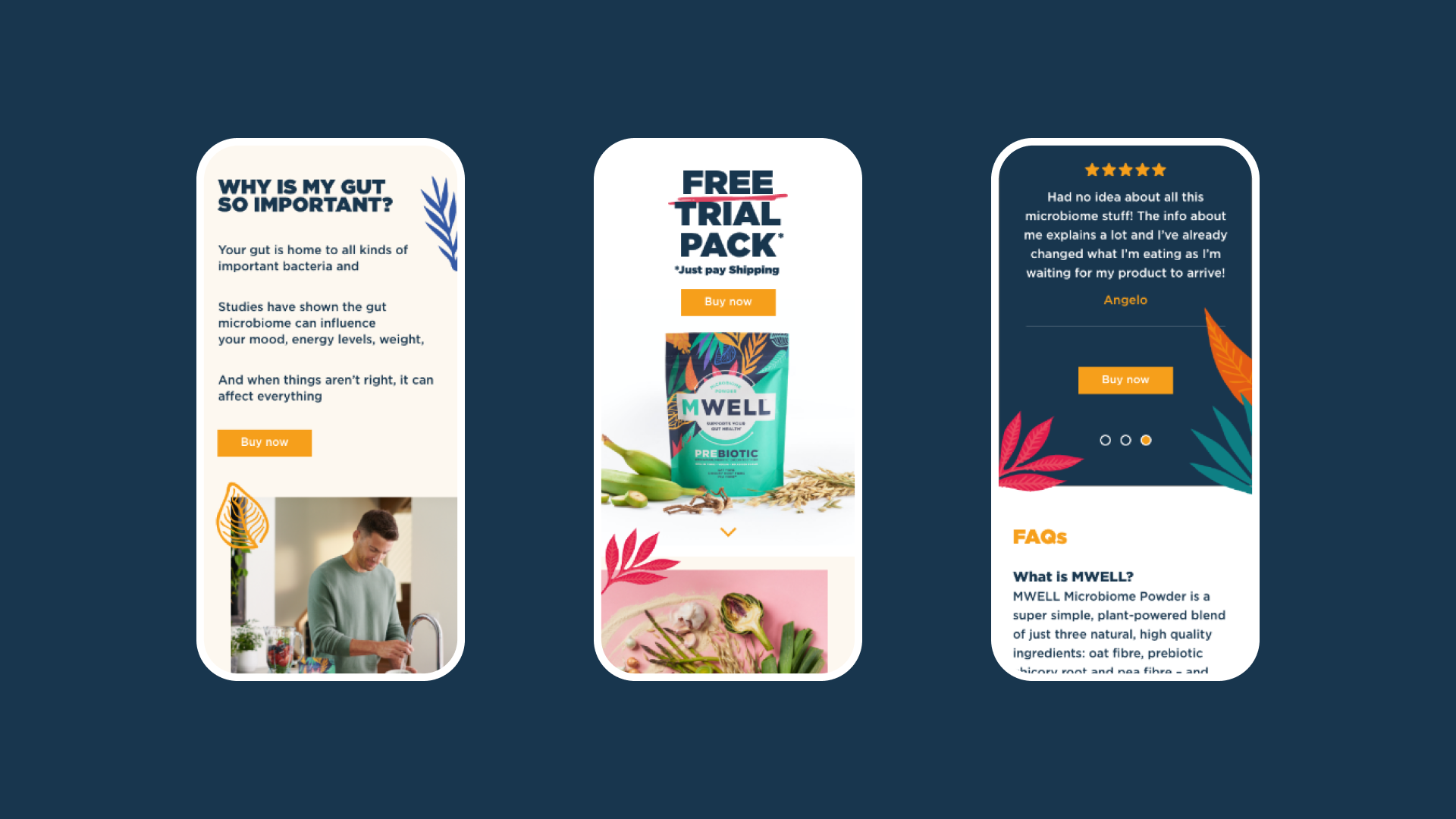
Monitoring performance
DEPT® performed a CRO test to monitor traction, which looked at 722 visitors across a 14 day period. Results showed a conversion rate of 9.12% vs 14.17% (+55.37%) and as we dive deeper into the test data we can draw some further conclusions:
- a 55.37% uplift in visitors progressing through to the website’s gut health assessment
- Progression from the Gut Quiz to Microbiome Powder increased by 178% (13.89% to 38.71%).
- 21% uplift in overall e-commerce conversion rate
- 59.54% uplift in mobile visitors adding products to basket
Questions?
Discover more

